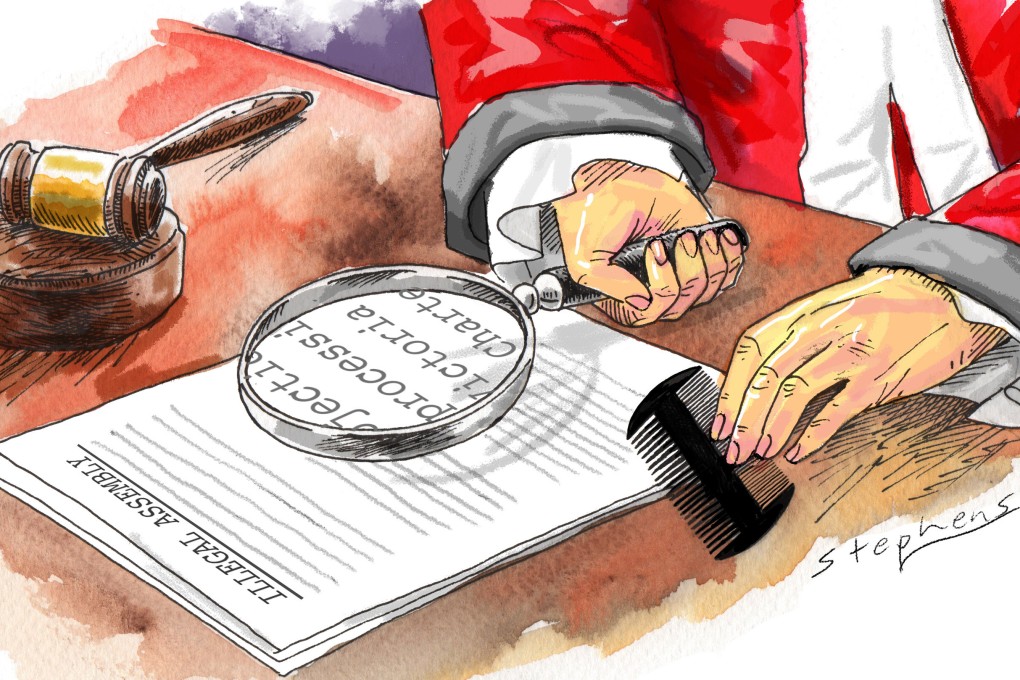Advertisement
Opinion | Hong Kong pro-democracy activists were jailed on sound legal grounds, not Beijing’s orders
- The judge who found them guilty of organising and being involved in an unlawful assembly acted with meticulous care and based her judgment on irrefutable evidence
- The idea that Beijing practised ‘ruthless oppression’ on Hong Kong through the court proceedings is nonsense
Reading Time:4 minutes
Why you can trust SCMP
78

On April 16, a District Court sentenced nine prominent “activists” to imprisonment, with some sentences suspended, for organising and taking part in an unlawful assembly, under the Public Order Ordinance. This is a long-standing statute dating back to colonial times.
The sentencing led immediately to condemnation by Western leaders and the media. Chris Patten said the sentences showed Beijing’s “comprehensive assault on Hong Kong’s freedoms”. An editorial in The Australian carried the headline “Courageous Hong Kong democrats crushed”. The article went on to refer to the sentences as reflecting “the ruthless oppression Beijing is inflicting on the territory”.
This was a gross insult to Judge Amanda Woodcock, following a trial where the accused were represented by six Senior Counsel and a whole host of junior barristers. Plainly, the critics didn’t read the judgment. Anyone bothering to do so would see that the judge acted with meticulous care, giving due weight to all the safeguards the common law affords to all accused persons.
Advertisement
The offences occurred on August 18, 2019. By that time, the insurgency, which started at the end of June, had gathered deadly momentum, following the trashing of the Legislative Council chamber on July 1.
The chamber was the symbolic centre of Hong Kong’s democracy. When the July 1 outrage occurred, the accused persons – all leaders of the democratic movement – had a choice: defend the values which the Legislative Council chamber stands for, or side with the insurgents, to trash its values. They chose the latter course.
Advertisement
Advertisement
Select Voice
Select Speed
1.00x

